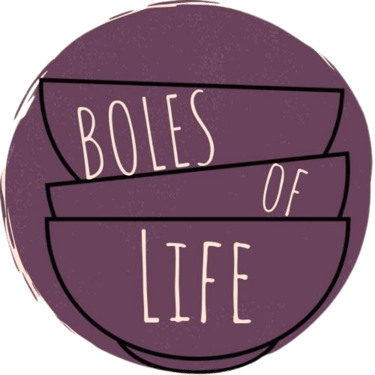Collide25
FAITH
2/8/202512 min read
Lie #1
Silence & Solitude
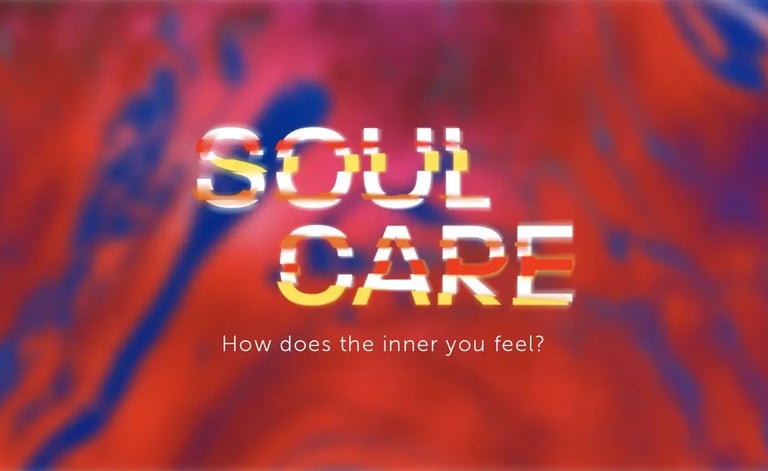

You are what others say.
Truth #1
If we are created by God, which we are, then it isn’t other created people, but the Creator who gets to tell us who we are.
Spiritual Practice #1
Bible Reading Plan #1
Lie #2
Sabbath
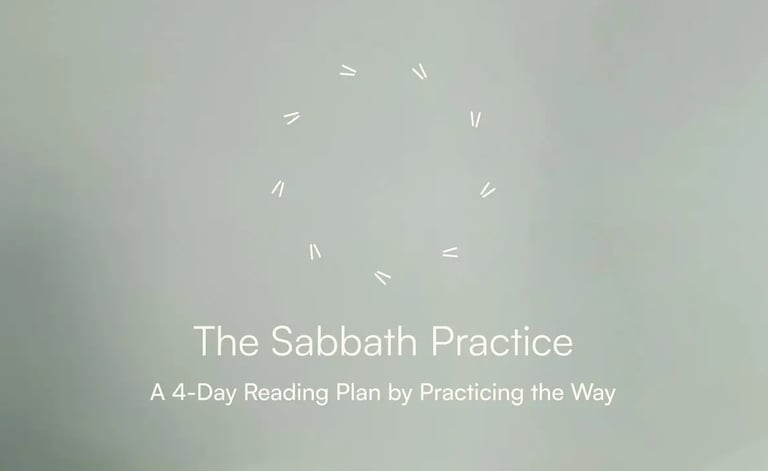

You are what you do.
Truth #2
If we are created by God, which we are, then it isn’t through our actions, but through what the Creator has done for us that our identity is given.
Spiritual Practice #2
Bible Reading Plan #2
Lie #3
Self Reflection
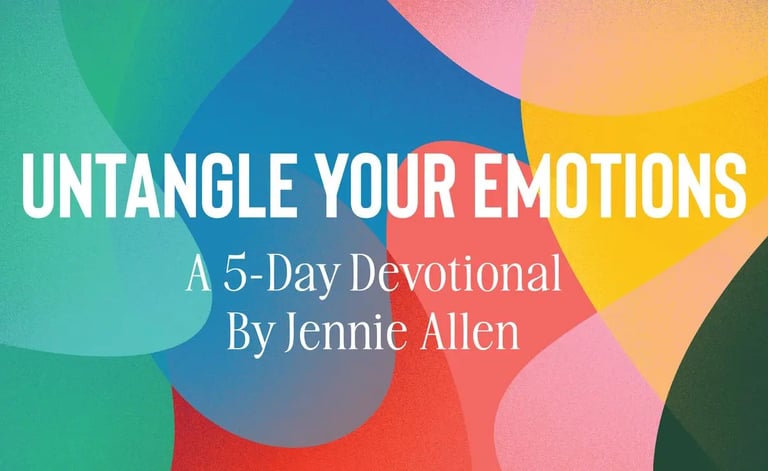

You are what you feel.
Truth #3
If we are created by God, which we are, then it isn’t through fluctuating emotions, but through the truth of the unwavering Creator that we find our true selves.
Spiritual Practice #3
Bible Reading Plan #3
Lie #4
Scripture Reading
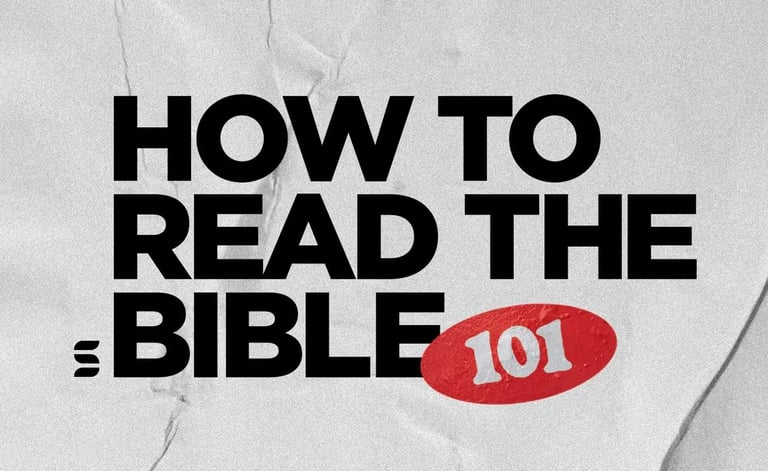

You can choose your own identity
Truth #4
If we are created by God, which we are, then it isn’t through self-invention, but by trusting what the Creator has created us to be that we find the good life.
Spiritual Practice #4
Bible Reading Plan #4
Four Lies About Your Identity
Bottomline: Our world is full of identity confusion, offering false promises of self-discovery that leave us lost. The truth about our identity is only found through our Creator.
Hook
My mom has four siblings. One older brother, a younger brother, and a significantly younger sister (she was an accident). Mom and her two brothers had ten kids across about six years. Of those ten I am the youngest. We all lived in a small town where everyone knew everyone and my cousins and brother were all known as athletes; there seemed to be something in our family genes. Except I seemed to not get that gene because I could never keep up with them or throw a ball like them. So early in life, I heard them say I wasn’t athletic and I believed it. I actively avoided situations that it would become clear to my peers how unathletic I was for fear of embarrassment. Where the core identity of my family seemed to be sports I made mine about academics and band. Then I went to college and my friends picked up ultimate frisbee. So being less driven by fear of embarrassment I joined in. And it turned out I was pretty decent. I’m not going pro but I am fairly talented at it. I spent almost two decades believing a lie about myself that shaped some pretty major decisions I made through those years and the course of my life.
Creator and creation
If we aren’t careful we can do that with our identity as well. It is easy to buy a lie about what makes you who you are and what your purpose in life is because there are a lot of really attractive lies out there. Our world is full of identity confusion, offering false promises of self-discovery that leave us lost. But the truth about our identity can only be found through our Creator. With that in mind, let’s look at our Creator creating us. Genesis 1:26-28, “Then God said, “Let us make human beings in our image, to be like us. They will reign over the fish in the sea, the birds in the sky, the livestock, all the wild animals on the earth, and the small animals that scurry along the ground.” So God created human beings in his own image. In the image of God he created them; male and female he created them. Then God blessed them and said, “Be fruitful and multiply. Fill the earth and govern it. Reign over the fish in the sea, the birds in the sky, and all the animals that scurry along the ground.” Genesis 2 continues the story as God shares with them the one thing they shouldn’t do to have abundant full life. In choosing to do it they declared they didn’t trust God to give them the good life. They wanted freedom from God to do what made sense to them even when it went against what God said. When they made that choice in Genesis 3 creation no longer functioned as designed. It was broken in constant need of repair, people included.
Pay attention to what happens in Genesis 1-3 regarding the identity of the people God created. God created them and gave them their identity by making them like Him. They reflected His characteristics, His ability to think rationally, to be creative, and to be moral. He gave them responsibility over creation like He is responsible for creation. He also created them with a need for relationship like He exists in constant relationship as the One God Who is Three Persons. Yet, despite already being like God they believed the lie that they weren’t and God was holding out something that would lead them to a greater life. Acting on that lie led to consequences, but because of God’s rescuing grace, the consequences weren’t nearly what they could have been. You see, since the beginning, we’ve been struggling against God for the ability to define ourselves not by what He has, as Creator, shown to be true of us, but instead by lies that promise much and deliver only short-term pleasure and long-term pain. For the next few minutes we are going to look at four common lies about identity, contrast them with Biblical truth, and then learn spiritual practices to help us resist each lie.
#1 You are what others say about you
Human beings crave belonging and affirmation. It is part of the way God made us for relationship with others. We want to know that others like us, they approve of what we say and do, and that we are a part of a group. Being rejected by others feels massively painful, but being approved of provides us a sense of security and gives a temporary boost to our self-worth. In the social media age where we can have instant feedback through likes, shares, and comments it is easy to assume our identity is primarily about what other people think and say of us. It is also easy to chase the dopamine rush of people’s approval by constantly reengineering the perception of who you are.
The big problem here is people’s opinions are inconsistent and often contradictory. They say they want you to say and do one thing, but when you do it they criticize you for the way you did it or for not giving any nuance or thought to the other ways you could have. It’s a vicious loop of trying to please everyone while actually pleasing no one yourself included. Living for the approval of others drives us toward a life of people-pleasing and really a life of anxiety.
Jesus felt the whiplash of people’s approval as they praised Him entering into Jerusalem like a king at the beginning of a week and by the end of the week, they were almost rioting calling for his execution. Jesus had to ignore their praise and their disdain in order to live out His true identity and purpose. Paul confirmed that ignoring what others think of us is necessary when he wrote in Galatians 1:10 that if pleasing people were his goal, he would not be able to be Jesus’ follower.
Ultimately, if we are created by God, which we are, then it isn’t other created people, but the Creator who gets to tell us who we are. In Isaiah 43:1 God says, “I have called you by name; you are mine.” God’s loving claim on us is eternal and unchanging. So our role is to learn how to be secure in God’s voice over the opinions of others. A great practice to help us feel confident and hear God’s voice is prayer. Specifically, it is the prayer of silence and solitude where we remove ourselves from others to fully focus on God. Instead of praying through words we simply make ourselves present to God in silence. To be clear, that isn’t easy. Most likely 3 minutes or less will be long enough because it will feel like an eternity. But in silence, we learn to trust God more than the trusting the noise. A good 5 day Bible reading plan that teaches about Praying through silence and solitude is called Soul Care Part 3 Silence. (I’ll give you a direct link at the end.)
Lie #2 You are what you do
Very often in our culture Identity is tied to your performance, grades, job achievements, or extracurriculars. While you may not often get the “What do you do?” question in reference to a job yet, you likely have people ask you what classes you take and what sports, clubs, or activities you are a part of. While we never say it quite this way, these tangible parts of your life can seem to serve as proof of your worth. After all, hard work and success are often rewarded whether with tangible prizes, admiration, or respect. So much so that most of us live with a constant fear of being insignificant or forgotten if we don’t achieve enough; just a little bit more.
Social media amplifies the pressure of finding your identity and purpose through achievements by making us feel we need to curate our image. But what happens when you fail? When you cannot even fake a successful image? What about people who are unable to achieve due to circumstances, sickness, or disabilities? The 'you are what you can do' mindset leads us to all kinds of insecurities and exhaustion from striving endlessly and putting on a false face.
Ultimately, if we are created by God, which we are, then it isn’t through our actions, but through what the Creator has done for us that our identity is given. Ephesians 2:8-10 tells us that we are saved by the grace of God, not by our ability to do something. Our value is not in what we do but in whose we are. So we resist the lie of I am what I do, by resting in our identity as the loved children of God the Father, Son, and Spirit, that scripture shows us to be. A great practice to help us rest in God is the Sabbath. Sabbath is a time when we choose to stop, rest from work, delight in the good things of God’s creation, and worship God. In a culture of always going and doing sabbath can be difficult because it means we have to trust our world will keep spinning even when we stop. A good 5 day Bible reading plan that can teach about what the Sabbath is and how to do it well is called The Sabbath Practice. (Link at the end.)
Lie #3 You are what you feel
In our culture feelings are seen as the ultimate guide to truth. Our feelings are deeply personal and seem to offer an authentic experience of reality. There is something compelling about the idea that our emotions can reveal our true selves. It feels empowering. It almost makes sense that if we trust our instincts and avoid anything that feels restrictive or oppressive then we’ll find real life. After all, how often have you heard the phrase to follow your heart or live your truth? We’re so about feelings that research shows we prioritize personal feelings over objective truth. Like during the 2020 COVID pandemic when people were pulling out facts to support their arguments for or against masks. No one was ever convinced by the other side’s facts. The facts didn’t matter, only the way people felt.
The problem is feelings are inconsistent and unreliable. How often have you felt one way about someone and then felt the exact opposite about them later without really being able to articulate why? No facts changed, but you had a new feeling. In the Bible the prophet Elijah went from seeing God send fire from heaven when Elijah prayed to assuming God had abandoned Him just because someone was angry with him. Peter went from declaring he would never disown Jesus to disowning Jesus in a matter of hours because he became afraid. When we base our identity on our feelings we become trapped in a yo-yo of instability as our emotions waiver back and forth.
Ultimately, if we are created by God, which we are, then it isn’t through fluctuating emotions, but through the truth of the unwavering Creator that we find our true selves. Our feelings aren’t bad, God displays emotions throughout the Bible. But we must learn how to align our feelings with God’s truth rather than allowing our feelings to define us. A practice to help us align our feelings with God’s truth is self reflection. When we take time to notice what we are feeling and why we are feeling it we give space for us to discard the lies our emotions want us to believe and space for the truth of God to be reinforced. We can reflect by reading and praying the Psalms which give us permission to have big emotions and bring them to God. We can also reflect by having a few easy questions to ask ourselves and possibly even journaling our responses. A good 5 day Bible reading plan for reflecting on our emotions is called Untangle Your Emotions. (link at the end.)
Lie #4 You can choose your own identity
Our world has the belief that identity is a blank canvas – each person gets to craft their own meaning This idea of self-definition feels liberating. It gives you autonomy and personal choice. We celebrate the idea that you are your own person and you aren’t responsible to anyone nor do you have to take the opinion of anyone else. We love the concept that everyone could live life in the way that brings them the most joy and pleasure. We don’t want to feel constrained by external definitions of identity to the point that we now shame and cancel people who point out the ways scientific fact contradicts the identity we have chosen.
One of the biggest problems with being able to choose any kind of identity you want is just how overwhelming the infinite amount of choices can be. A few years ago I was going through an intense season of life where I was bombarded with choices without easy answers and no matter which I chose someone was always upset. The moment I remember most vividly was after a week of those kinds of choices I woke up, started getting ready for the day, and then froze standing in my closet for about 15 minutes unable to make a single choice. I had reached my limit. So I stood there paralyzed by the idea that no matter what I wore that day it wouldn’t be right and somehow it was going to ruin my entire day. Trying to choose your own identity from a list of infinity doesn’t led to freedom, joy and pleasure. It leads you to a life of instability, confusion, anxiety, and constantly feeling the need to reinvent yourself. Trying to search for your identity in passions, achievements, sexuality, gender, self-expression, etc. leads you to disappointment.
Ultimately, if we are created by God, which we are, then it isn’t through self-invention, but by trusting what the Creator has created us to be that we find the good life. As we saw in Genesis 1 we are made in the image of God to bring all of creation into a worshipful relationship with God. As is true of any created thing, its creator gives the creation its identity and purpose. True freedom, the good life we are seeking, is found in surrendering to God, not by pretending we can self-create. A practice that will help us remember where our identity comes from is reading scripture alone and with others. The entire story of the Bible is the true story of how God created, how He loves His creation even when it rejects Him, and how He rescues His creation. Reading that story over and over in the various forms it takes throughout the Bible helps us ingrain and not let go of the truth that God made us like Him and gave us everything we need for the good life when we trust who He says we are and what our purpose is. A good 7-day Bible reading plan to help you know how to read the Bible is called How to Read the Bible 101 (link.)
Conclusion
Because I know you are like literally everyone else I’ve ever met I know you’ve believed one or two or all of these lies about where your identity comes from. Hear me when I tell you who you are isn’t what others say you are. You aren’t what you do, you aren’t what you feel, and you aren’t whatever you choose to be. You are so much more than anything those chaotic stress-inducing and life-killing lies offer. Through the secure and unshakable love of Jesus, you are fully known and fully loved. You are fully known by Jesus in all your brokenness and struggles and you are still fully loved by Him with no caveats or criteria. 2 Corinthians 5 tells us, “We have stopped evaluating others from a human point of view. At one time we thought of Christ merely from a human point of view. How differently we know him now! This means that anyone who belongs to Christ has become a new person. The old life is gone; a new life has begun! And all of this is a gift from God, who brought us back to himself through Christ. Now God has given us this task of reconciling people to him.” In other words, we don’t think of the identity of others, or ourselves, the way culture does because Jesus, our Creator, loved us enough to heal our brokenness, gave us a way to be fully remade into His image, and restored our purpose of pointing others to the true good life of being in worship relationship with Him. So let’s resist the fleeting cultural narratives, reject the lies around us, and embrace God’s truth about who we are! How do we do that? We commit to spiritual practices that help us trust God and follow His leading even when the lies look tempting. I recommended four different Bible reading plans that are all found on the YouVersion Bible app to help you with those spiritual practices. You can search the names of each, but to make it extra easy I put together one single link that will give you quick access to everything I recommended today. www.bolesoflife.com/collide25
Pray
Boles of Life
Join us on our messy, adventurous journey through life.
© 2024. All rights reserved.
